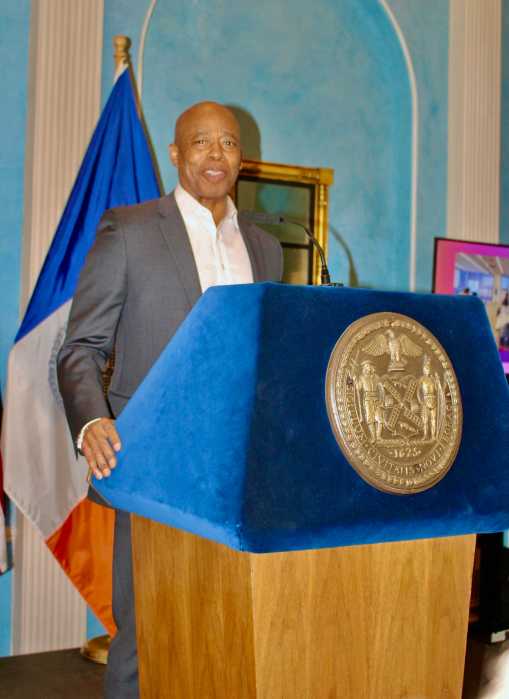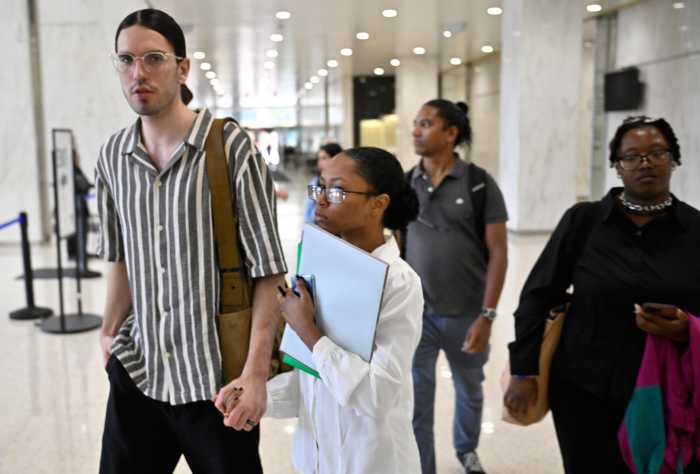When Michigan voters approved a state constitutional amendment in 2004 to ban same-sex marriage, its sponsors assured voters that it was not intended to affect domestic partnership benefits provided by some municipalities and public universities in the state.
By: ARTHUR S. LEONARD | When Michigan voters approved a state constitutional amendment in 2004 to ban same-sex marriage, its sponsors assured voters that it was not intended to affect domestic partnership benefits provided by some municipalities and public universities in the state.
That made no difference to a unanimous three-judge panel of the state's Court of Appeals, which ruled on February 2 that the amendment makes such benefit plans illegal. The American Civil Liberties Union of Michigan, representing plaintiffs including National Pride at Work, an AFL-CIO LGBT affiliate, as well as state employees, will appeal the ruling.
Justice Kurtis T. Wilder's opinion reversed a September 2005 ruling by Ingham County Circuit Judge Joyce Draganchuk.
The court of appeals' ruling is based on a hyper-literal reading of the voter-initiated amendment, whose wording differs from every other marriage amendment passed across the nation. That unique wording creates a curious loophole that could allow for partner benefits if government employers were to condition eligibility on something other than documentation of an interdependent relationship between the employee and the benefits recipient-for example, cohabitation.
The amendment states, in part, “The union of one man and one woman in marriage shall be the only agreement recognized as a marriage or similar union for any purpose.”
Following the amendment's enactment, the city of Kalamazoo, negotiating with a municipal union over partnership benefits, asked Republican Attorney General Michael A. Cox for an opinion about whether such a plan would be legal. Cox issued a formal opinion in March 2005 saying the amendment bans any state “acknowledgment” of an unmarried relationship between adults, same-sex or opposite sex. Kalamazoo then indicated it would not extend benefits, and a tentative agreement on partnership benefits between the state government and a major employee union was also shelved.
The ACLU, on behalf of the gay plaintiffs, sought a judicial declaration that existing domestic partnership benefits plans remained lawful, and that new ones could be established. Their main argument, accepted by Judge Draganchuk, was that “health care benefits for a spouse are benefits of employment, not benefits of marriage.”
Attorney General Cox promptly appealed the decision.
Justice Wilder wrote, “The operative language of the amendment plainly precludes the extension of benefits related to an employment contract, if the benefits are conditioned on or provided because of an agreement recognized as a marriage or similar union.” The court noted that the domestic partnership benefit plans introduced in evidence were all in one way or other based on an “agreement” between the partners.
“The trial court erred in ignoring the significance of the term 'agreement' in the marriage amendment,” wrote Wilder. “Three of the four plans provided in the record… require the domestic partners to have registered, declared, signed, or filed a domestic partnerships agreement.” Any partner benefits plan premised on proof by an employee and their partner of an agreement to be “jointly responsible for basic living and household expenses” would, in the eyes of the court, constitute “recognition by the public employer of a 'similar union for any purpose,'” disallowed by the amendment.
Among the plans thrown out were those at the University of Michigan and Michigan State University.
Wilder said that amicus briefs describing the adverse consequences of barring partner benefits plans were not relevant to the court's consideration, because the people of Michigan had made their policy choice.
As to the plaintiffs' argument that the court's reading of the amendment deprives same-sex couples of the equal protection of the law guaranteed in the Michigan Constitution, Wilder wrote, “Consistent with the state's long public policy tradition of favoring the institution of marriage, the marriage amendment's purpose, 'to secure and preserve the benefits of marriage for our society and for future generations of children…' is neither arbitrary nor invidious on its face.”
He also noted that unmarried opposite-sex couples are treated the same as same-sex unions under the court's interpretation.
In a puzzling throw-away line, Wilder wrote, “The amendment as written does not preclude the extension of employment benefits to unmarried partners on a basis unrelated to recognition of their agreed-upon relationship. In this regard, the amendment is narrowly tailored to further the legitimate governmental interest in protecting and strengthening the institution of marriage, and not to arbitrarily or invidiously exclude individuals from the protections of the laws of this state.”
This language presumably leaves the state with the flexibility to provide benefits under some mechanism that does not require employees to show evidence of an “agreement” with their partners. The state of Michigan, the universities, or the city of Kalamazoo could, for example, predicate benefits based on cohabitation, though that could open them up to extending them more broadly than public employers might deem affordable.
































